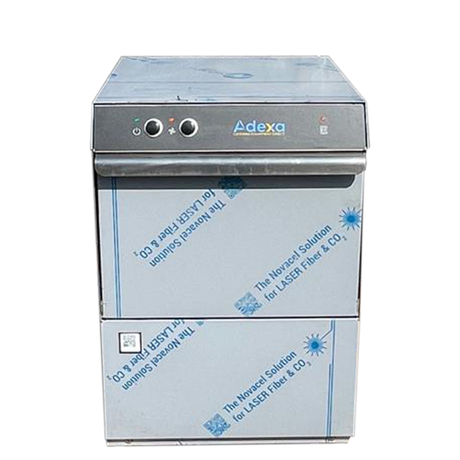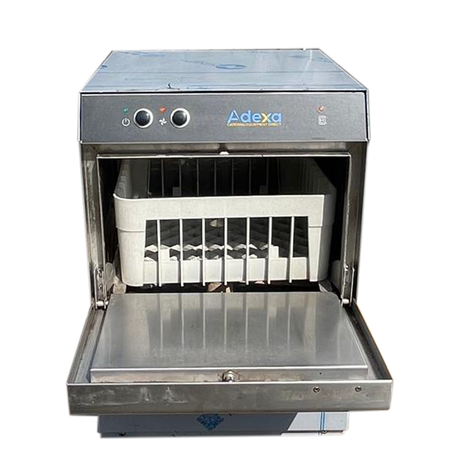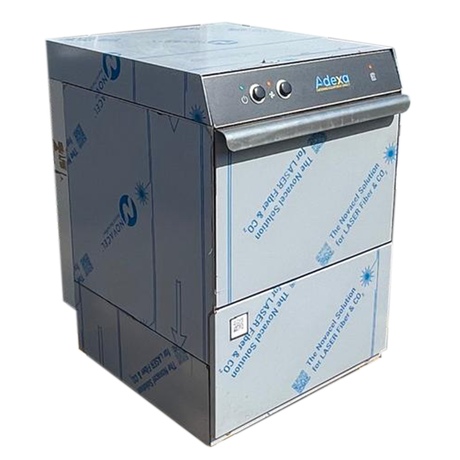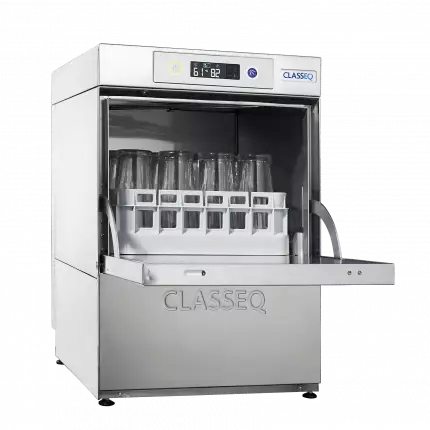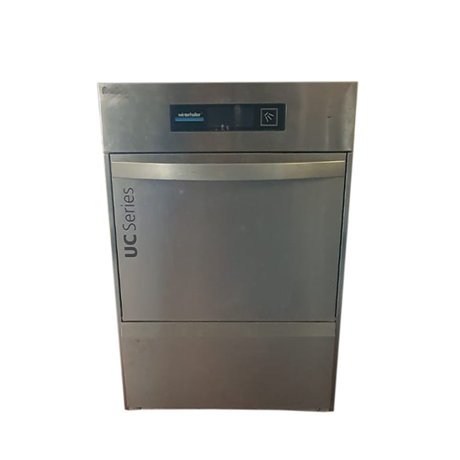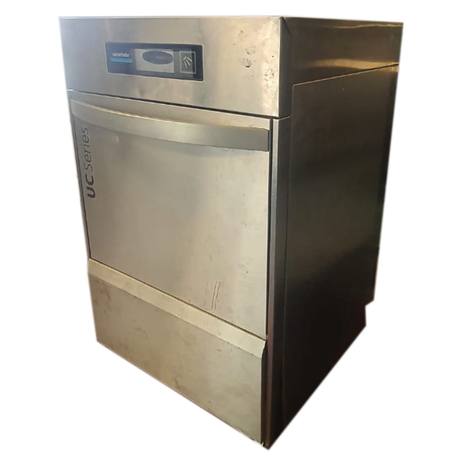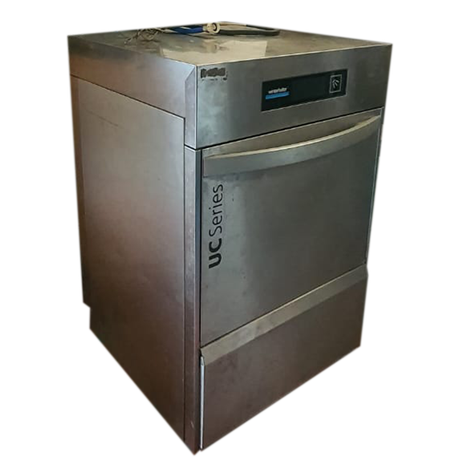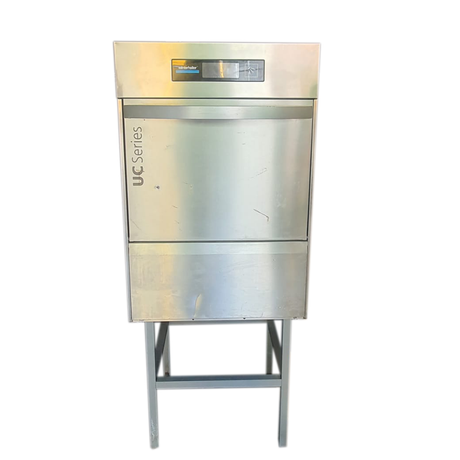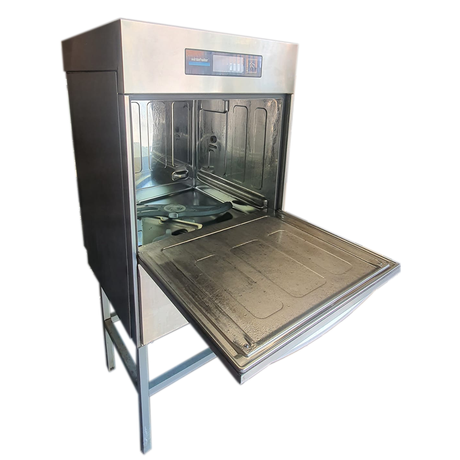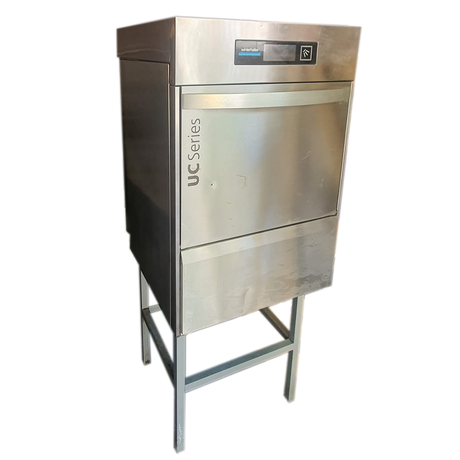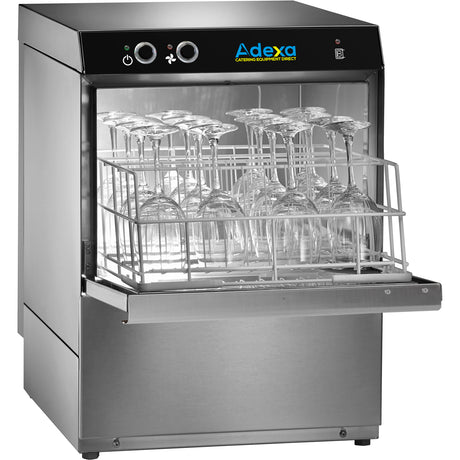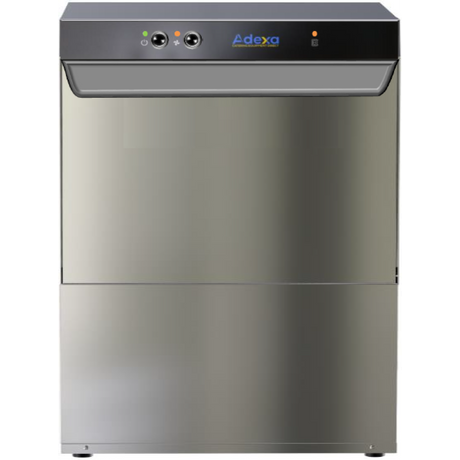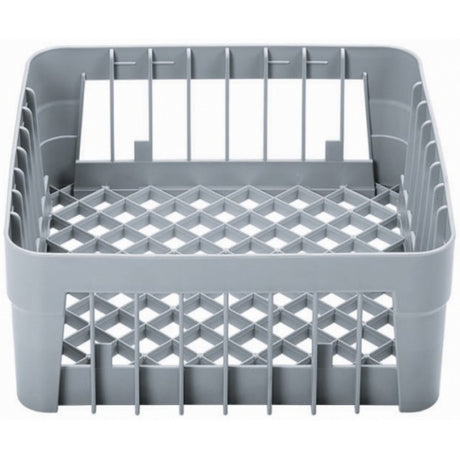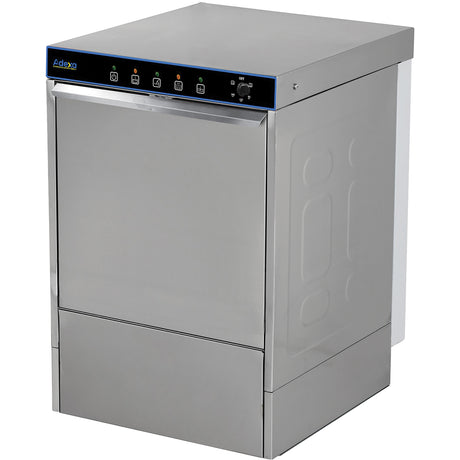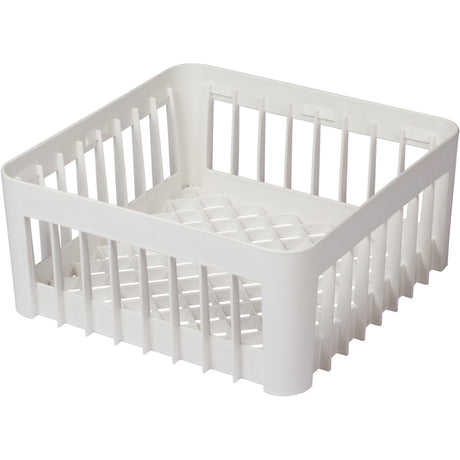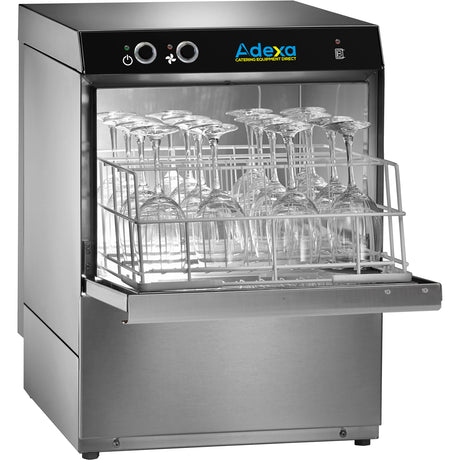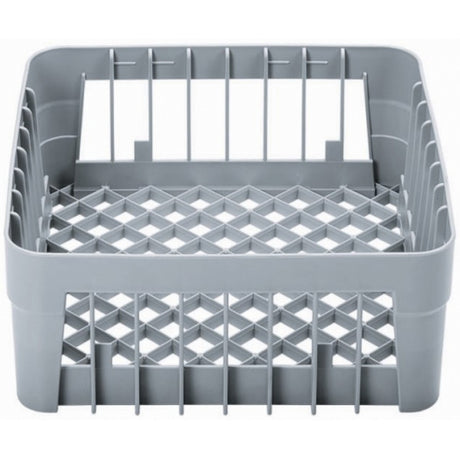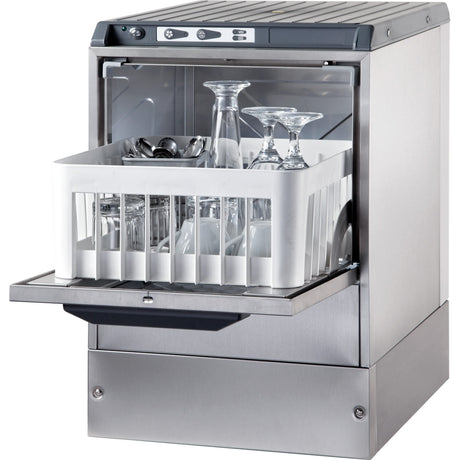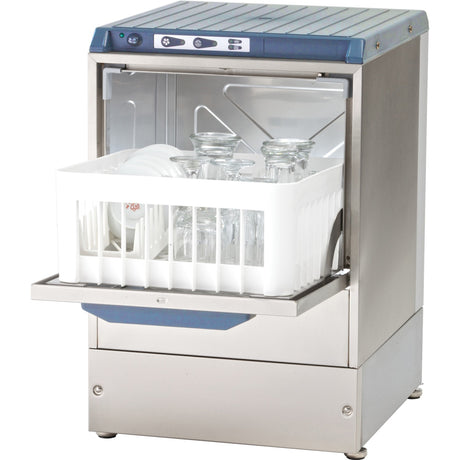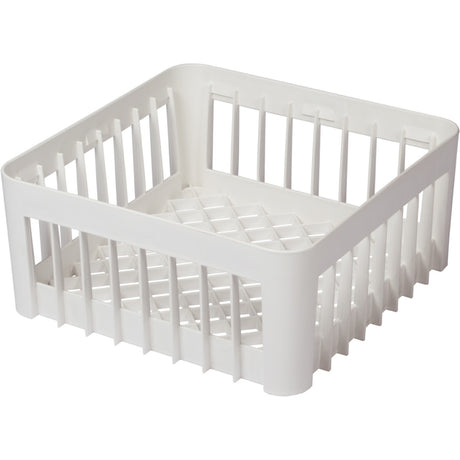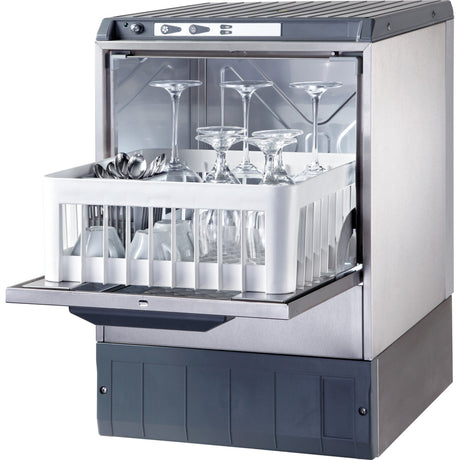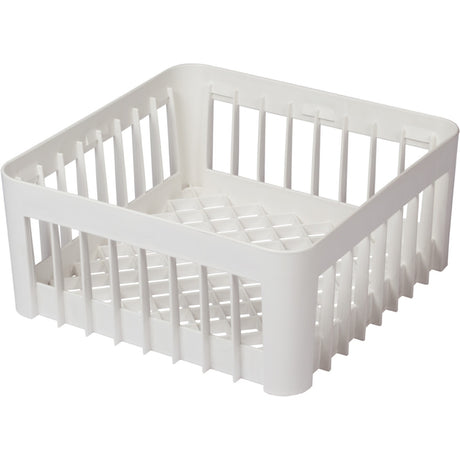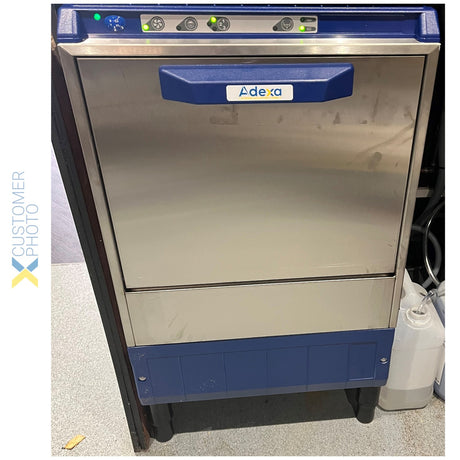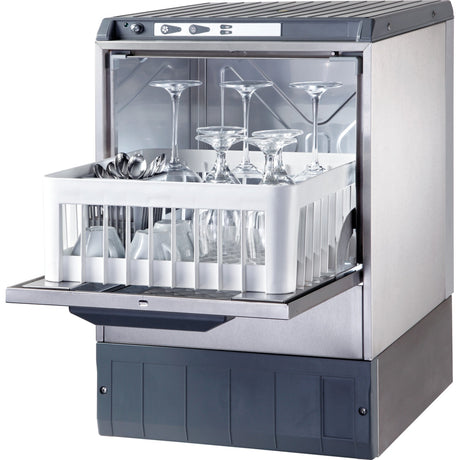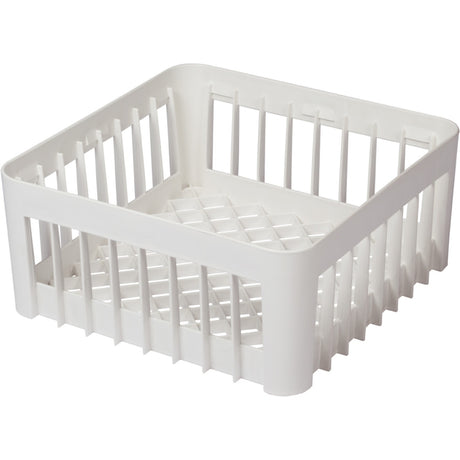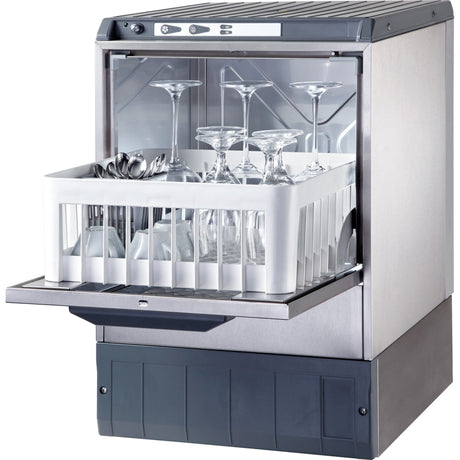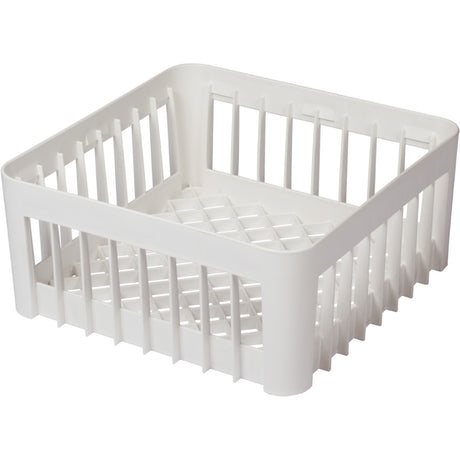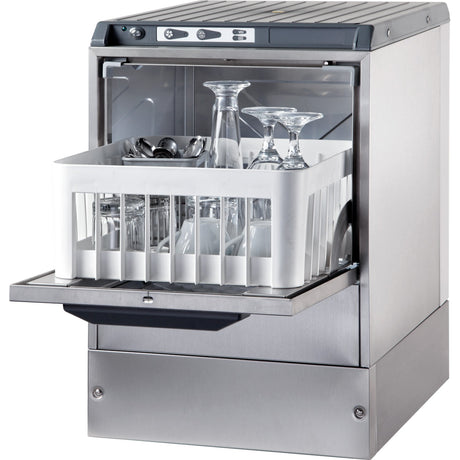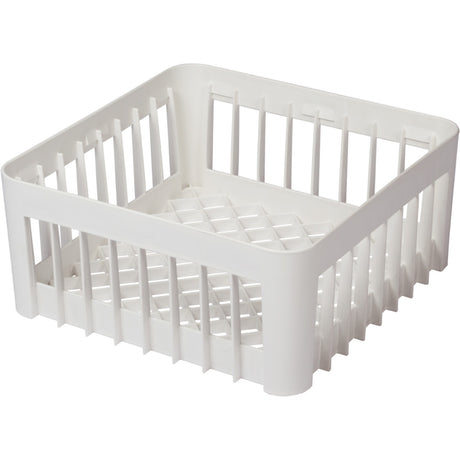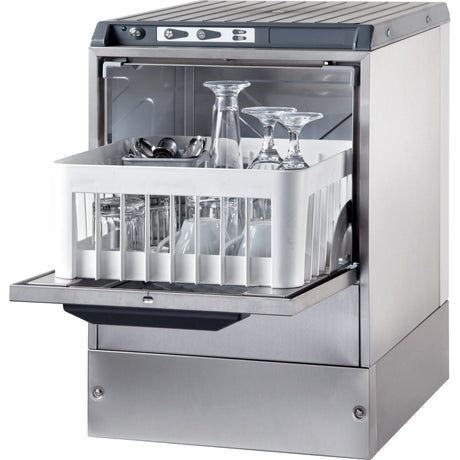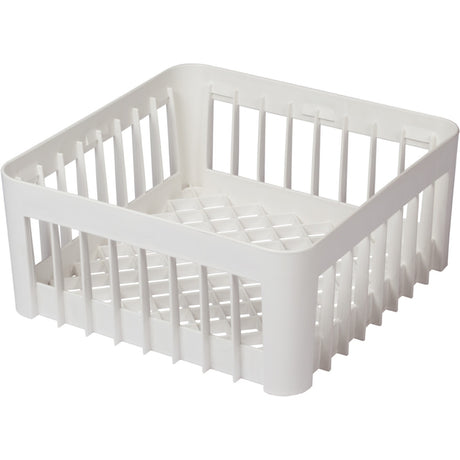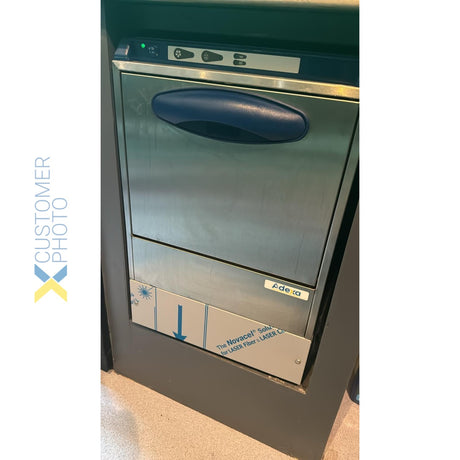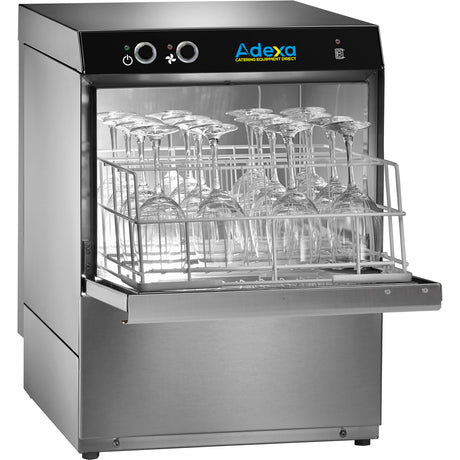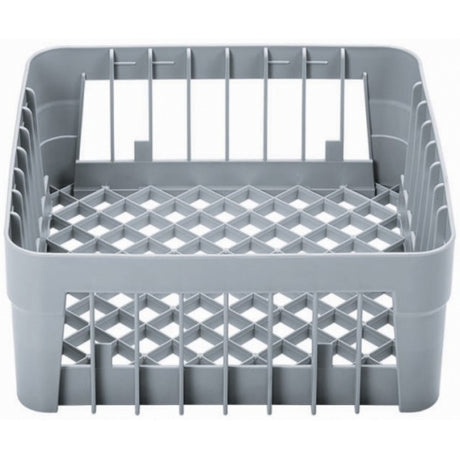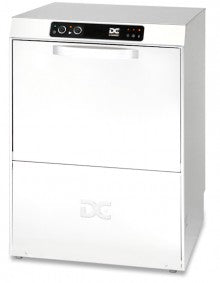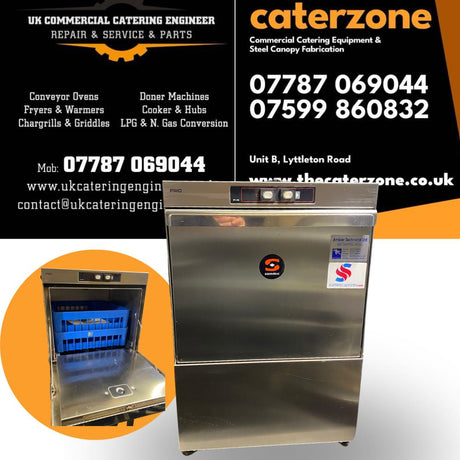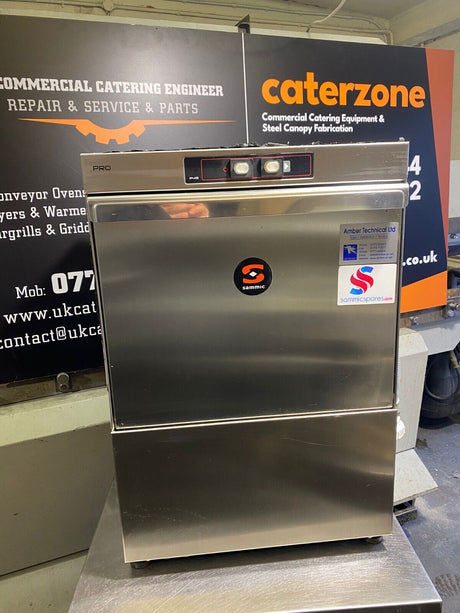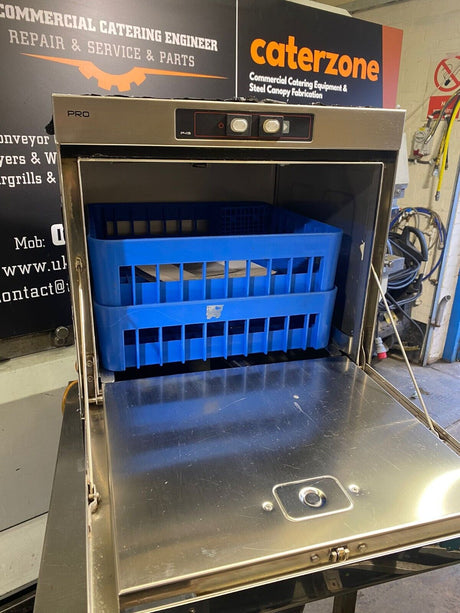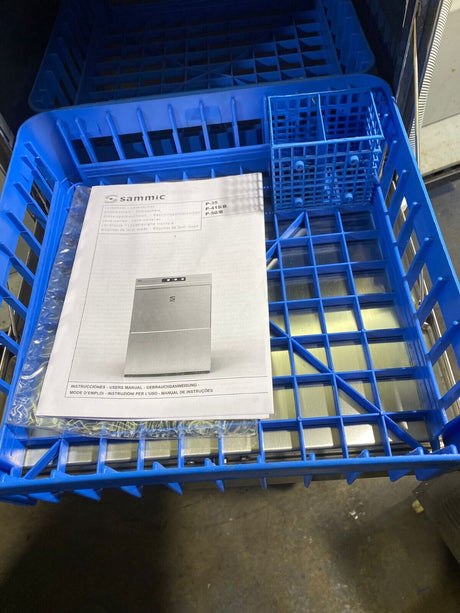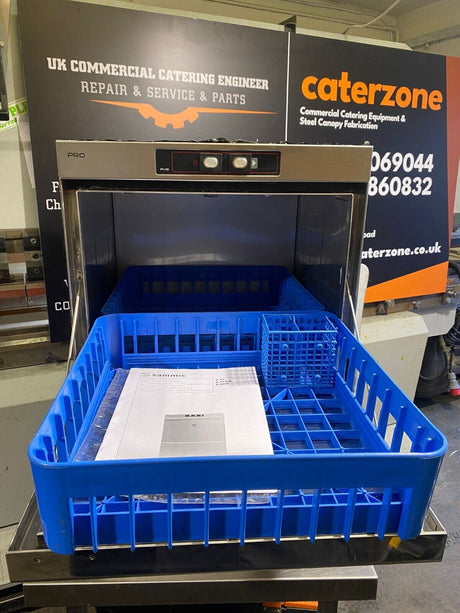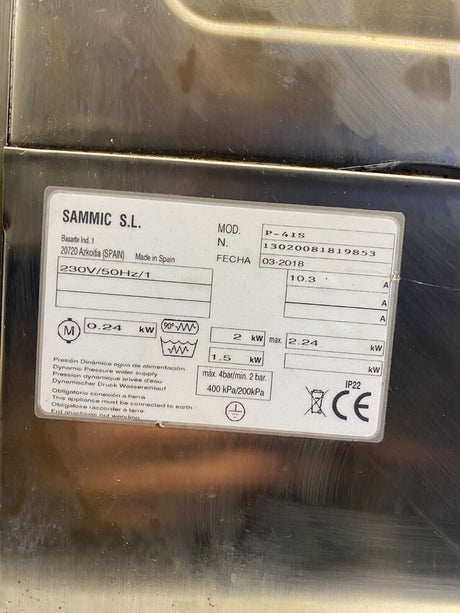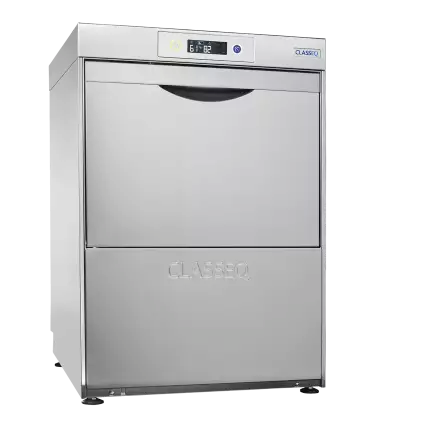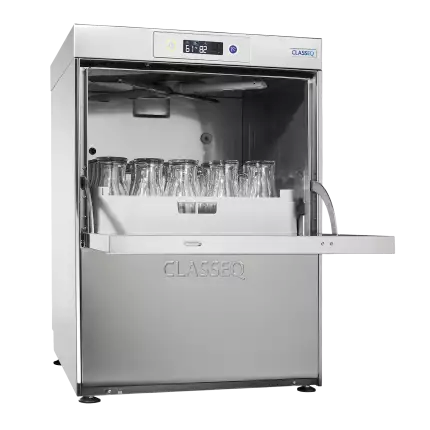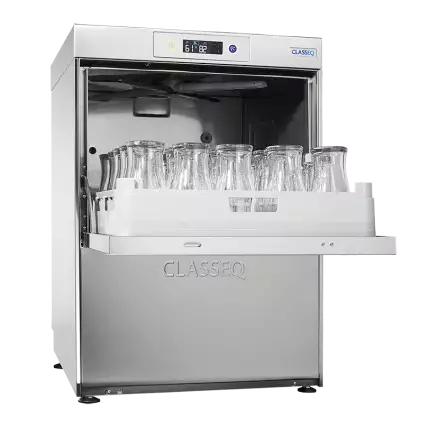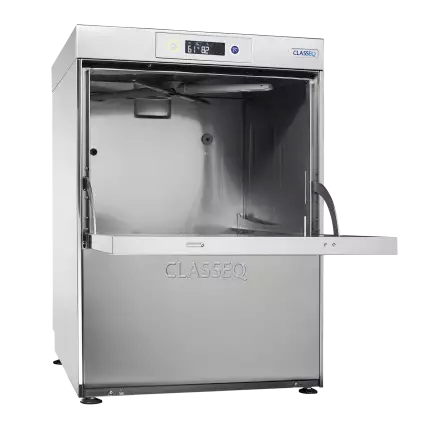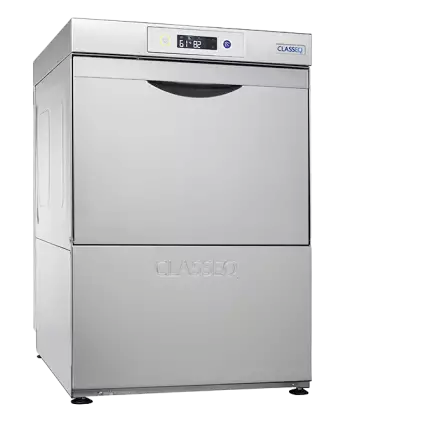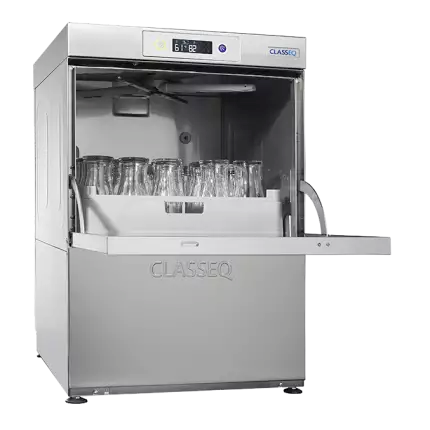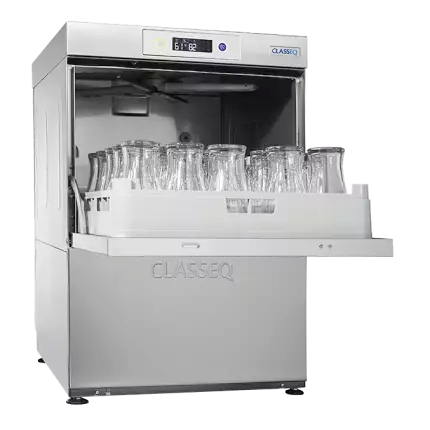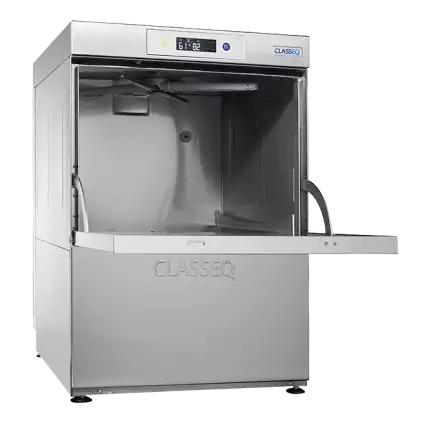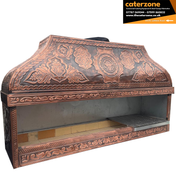- New arrival
Caterzone
Very low stock (1 unit)Regular price £700.00Unit price /Unavailable - Sold outNew arrival
- £1,169.65 offNew arrival
UK CATERING
Commercial Glasswasher 60 Racks/Hour 400mm Basket 480×540×696mm | Aaw104
Low stock (16 units)Sale price £1,155.95 Regular price £2,325.60Unit price /Unavailable - £1,116.95 offNew arrival
UK CATERING
Commercial Glasswasher 30 Racks/Hour 350mm Basket 430×511×674mm | Aaw102
Low stock (16 units)Sale price £1,012.95 Regular price £2,129.90Unit price /Unavailable - New arrival
Caterzone
Very low stock (1 unit)Regular price £1,000.00Unit price /Unavailable Caterzone
DC Standard SG35D 350mm 14 Pint Undercounter Glasswasher With Drain Pump - 13 Amp Plug in
Very low stock (5 units)Regular price £1,500.00Unit price /Unavailable- New arrival
Caterzone
B Grade Glasswasher 40cm Basket 30 Baskets/Hour Built In Water Softener Drain Pump Detergent Dosing
Very low stock (1 unit)Regular price £1,200.00Unit price /Unavailable Sammic
Low stock (15 units)Regular price £2,627.00Unit price /UnavailableSammic
Low stock (15 units)Regular price £1,790.00Unit price /UnavailableSammic
Low stock (15 units)Regular price £1,622.00Unit price /UnavailableSammic
Glasswasher UX-40SBC 230/50/1 DD
Low stock (15 units)Regular price £3,499.00Unit price /UnavailableSammic
Glasswasher UX-40SB 230/50/1 DD
Low stock (15 units)Regular price £2,918.00Unit price /Unavailable- New arrival
Caterzone
Refurbished Winterhalter UC-L Undercounter Dishwasher/Glasswasher (2018)
Very low stock (1 unit)Regular price £2,750.00Unit price /Unavailable - New arrival
Caterzone
Refurbished Winterhalter UC-L Undercounter Dishwasher/Glasswasher (2018) with Stand
Very low stock (1 unit)Regular price £2,750.00Unit price /Unavailable - Sold out£497.05 off
UK CATERING
Sale price £980.95 Regular price £1,478.00Unit price /Unavailable - £629.05 offNew arrival
UK CATERING
Low stock (14 units)Sale price £1,168.95 Regular price £1,798.00Unit price /Unavailable - £577.05 offNew arrival
UK CATERING
Low stock (10 units)Sale price £960.95 Regular price £1,538.00Unit price /Unavailable - £443.05 offNew arrival
UK CATERING
Very low stock (6 units)Sale price £954.95 Regular price £1,398.00Unit price /Unavailable - Sold out£504.05 off
UK CATERING
Sale price £993.95 Regular price £1,498.00Unit price /Unavailable - £614.05 offNew arrival
UK CATERING
Low stock (12 units)Sale price £1,383.95 Regular price £1,998.00Unit price /Unavailable - £422.05 offNew arrival
UK CATERING
Commercial Glasswasher 800 1000 Glasses/Hour 350mm Basket Gravity Drain 13 A | Omniwash 3500 St
In stock (28 units)Sale price £895.95 Regular price £1,318.00Unit price /Unavailable - £638.05 offNew arrival
UK CATERING
Very low stock (5 units)Sale price £1,207.95 Regular price £1,846.00Unit price /Unavailable - £547.05 offNew arrival
UK CATERING
In stock (27 units)Sale price £1,116.95 Regular price £1,664.00Unit price /Unavailable - £458.05 offNew arrival
UK CATERING
Commercial Glasswasher 1000 1200 Glasses/Hour 400mm Basket Gravity Drain 13 A | Omniwash 4000 Bt
Low stock (12 units)Sale price £1,103.95 Regular price £1,562.00Unit price /Unavailable - £612.05 offNew arrival
UK CATERING
Low stock (20 units)Sale price £1,025.95 Regular price £1,638.00Unit price /Unavailable - £403.05 offNew arrival
UK CATERING
Very low stock (2 units)Sale price £934.95 Regular price £1,338.00Unit price /Unavailable - £539.05 offNew arrival
UK CATERING
In stock (26 units)Sale price £1,156.95 Regular price £1,696.00Unit price /Unavailable - Sold out£2,455.20 off
KROMO
Aqua Glasswasher 500x500mm With Drain Pump
Sale price £2,728.00 Regular price £5,183.20Unit price /Unavailable - Sold out£1,799.10 off
KROMO
Sale price £1,999.00 Regular price £3,798.10Unit price /Unavailable - Sold out£1,893.60 off
KROMO
Aqua Glasswasher 370x370mm With Drain Pump
Sale price £2,104.00 Regular price £3,997.60Unit price /Unavailable - Sold out£1,710.00 off
KROMO
Sale price £1,900.00 Regular price £3,610.00Unit price /Unavailable - Sold out£1,260.90 off
BLIZZARD
Sale price £1,401.00 Regular price £2,661.90Unit price /Unavailable - Sold outNew arrival
Caterzone
Commercial Glasswasher Undercounter 50cm basket - Refurbished
Regular price £1,187.95Unit price /Unavailable - £1,899.00 offNew arrival
BLIZZARD
Very low stock (5 units)Sale price £2,110.00 Regular price £4,009.00Unit price /Unavailable - £1,493.10 offNew arrival
BLIZZARD
Low stock (20 units)Sale price £1,659.00 Regular price £3,152.10Unit price /Unavailable DC
DC Commercial 500mm basket Drain pump Frontloading Glasswasher - SG50D
Low stock (10 units)Sale price From £1,900.95 Regular price £2,600.00Unit price /Unavailable- Sold outNew arrival
Caterzone
Sammic 400mm Basket 16 Pint Capacity Undercounter Glasswasher - New
Regular price £950.95Unit price /Unavailable - New arrival
Classeq
Classeq Glasswashers G500DUO 570x830x605mm
Very low stock (4 units)Regular price From £4,900.00Unit price /Unavailable - New arrival
Classeq
Classeq Glasswashers G500 550x830x605mm
Low stock (12 units)Regular price £2,500.00Unit price /Unavailable
The Ultimate Guide to Glasswashers for Commercial Use
For any foodservice place that serves drinks, clean glassware is key. Glasswashers are a quick, clean way to wash glassware. They are a must in bars, restaurants, hotels, and more. This guide will help you pick the best glasswasher for your business.
Understanding Glasswashers
A glasswasher is made just for cleaning glassware. It's different from regular dishwashers. Glasswashers have special settings to keep glass clean and streak-free.
Purpose and Functionality of Glasswashers
Glasswashers have shorter, gentler cycles than dishwashers. They clean lots of glassware fast without breaking it. They're great for places where cleanliness and presentation matter a lot.
Difference Between Glasswashers and Dishwashers
Dishwashers handle many types of dishes, but glasswashers focus on glass. They use softer water and controlled heat to avoid spots on glass. This makes glassware look better, which is important for businesses that care about presentation.
Types of Glasswashers
Choosing the right type of glasswasher depends on your business size and needs. Here are the main types for commercial use.
Undercounter Glasswashers
Undercounter glasswashers fit under counters and are perfect for small places. They save space and are easy to use, great for places that wash glass often but not in huge amounts.
Pass-Through Glasswashers
Pass-through glasswashers are for places that wash a lot of glass. They have a vertical door for quick loading and unloading. They're good for big restaurants or events where speed is key.
Rotary Glasswashers
Rotary glasswashers are for places that wash a lot of glass, like big bars. They move glassware through a cycle continuously. This makes them perfect for places where time is of the essence.
Key Features to Consider When Choosing a Glasswasher
When picking a glasswasher, think about what you need. This includes how much glassware you wash and how clean you want it to be.
Capacity and Size
The capacity of a glasswasher should match your business's needs. Small places might need undercounter units, while big places need pass-through or rotary ones. Pick a size that fits your kitchen and doesn't waste space.
Cycle Time and Speed
In busy places, fast cycle times are important. Quick cycles mean staff can wash glass faster, keeping it ready for customers. Rotary and pass-through glasswashers are usually faster, making them great for busy spots.
Energy and Water Efficiency
Choosing an energy-efficient glasswasher saves money and is better for the planet. Look for models that use less water and energy. These are good for businesses that want to save money and be green.
Temperature Options: High-Temp vs. Low-Temp
Glasswashers come in high-temperature and low-temperature models. High-temp units use hot water for a chemical-free clean. Low-temp models use chemical sanitizers, saving energy but needing more upkeep.
Choose the temperature that fits your cleaning and energy needs best.
Benefits of Using a Glasswasher in Foodservice
Adding a glasswasher to your foodservice brings many benefits. It saves labor, boosts sanitation, and makes customers happier.
Labor and Time Savings
A glasswasher cleans glassware fast and efficiently. This cuts down on manual labor and lets staff focus on other tasks. Automated cycles mean no handwashing, speeding up service.
Enhanced Hygiene and Sanitation
Glasswashers meet strict sanitation standards. They make sure glassware is clean and free of bacteria. High-temp models are great at killing germs, keeping diners safe.
Consistent Quality
Commercial glasswashers make sure glassware is always clean and streak-free. They use controlled cycles and the right temperatures. This keeps glasses looking great, improving the dining experience.
Cost Efficiency
Glasswashers may cost a lot upfront but save money in the long run. They cut down on labor costs and glass breakage. Their gentle cycles also help glassware last longer.
Marketing Insights: Positioning and Promoting Glasswashers
When marketing glasswashers to foodservice, highlight their benefits. Talk about how they save time, improve hygiene, and cut costs.
Emphasize Efficiency and Hygiene Benefits
It's key to talk about the efficiency and hygiene of glasswashers. Mention fast cycle times, high sanitization standards, and consistent quality. This shows how they make operations better and cleaner.
Use Testimonials to Showcase Customer Satisfaction
Customer feedback is powerful for glasswashers. Positive reviews from owners show how the equipment helps their business. They talk about saving on labor, improving service, and more. This builds trust with potential buyers.
Tailoring Messages for Different Establishments
Every foodservice business is different. Tailor your marketing to meet their needs. Bars might want quick, compact washers, while hotels need big capacity for events. Custom messages show you understand their needs and build trust.
Case Studies: Successful Implementation of Glasswashers
Real examples show how glasswashers boost efficiency, hygiene, and customer service in various settings.
Bar Setting: Increased Efficiency and Customer Satisfaction
A busy bar got an undercounter glasswasher to speed up service. The fast cycles meant bartenders had clean glassware quickly. This reduced wait times and made the bar look more polished, boosting customer happiness.
Restaurant: Enhanced Hygiene and Reduced Labor Costs
A restaurant put in a pass-through glasswasher for its glass needs. The reliable cycles handled big volumes without needing handwashing. This cut labor costs and improved hygiene, making the dining area cleaner.
Hotel: Improved Service Quality and Operational Efficiency
A large hotel installed a rotary glasswasher for its restaurant and banquet services. This high-capacity machine helped staff manage large amounts of glassware efficiently. It ensured quick service during busy times, keeping the hotel's service quality high.
Maintenance and Care for Glasswashers
Regular maintenance keeps glasswashers in top shape. It ensures they work well and last longer.
Regular Cleaning
Clean the glasswasher every day to stop food, detergent, and mineral buildup. Regular cleaning keeps it sanitary and efficient. Always follow the manufacturer's cleaning tips.
Filter and Drain Management
Filters and drains can get clogged with food, detergent, and other stuff. Clean them often to avoid blockages and keep water flowing. This simple step keeps your glasswasher running smoothly and saves on repairs.
Checking Spray Arms and Nozzles
Spray arms and nozzles spread water during washing. It's important to check them for clogs. Clogged nozzles can leave spots on glassware. Clean spray arms ensure all glassware is washed well.
Scheduled Professional Servicing
Regular professional checks can spot problems early. They keep your glasswasher in great shape. Professional maintenance extends its life, prevents breakdowns, and ensures top performance.
Trends in Glasswasher Technology and Design
New glasswasher technology makes kitchens more efficient, green, and user-friendly.
Energy-Efficient Models
Modern glasswashers use less energy and water. They also use eco-friendly refrigerants and parts. These features cut costs and help the environment.
Smart Controls and Monitoring
Smart glasswashers let managers check performance in real-time. These smart features alert staff to maintenance needs. They ensure the glasswasher works well all the time.
Compact Designs
New designs offer compact glasswasher models that are big on capacity but small in size. They fit well in small kitchens or tight spaces. These units are efficient and perfect for small bars and cafes.
Improved Sanitization Techniques
New methods like UV light and ozone technology are being used for sanitizing. They offer extra protection against bacteria and viruses. These methods add an extra layer of cleanliness and safety in washing glassware.
Choosing the Right Supplier for Glasswashers
When buying a glasswasher, pick a supplier that offers quality, reliable service, and support.
Supplier Reputation and Customer Feedback
Look into a supplier's reputation and read customer reviews. Positive feedback from other businesses shows their products and service are good. It means their glasswashers work well in real kitchens.
Warranty and After-Sales Support
A good warranty and after-sales support are key. Choose a supplier with a solid warranty and quick customer service. This way, any problems can be fixed fast to avoid downtime.
Bulk Purchase Options
If you have a big operation or many locations, look for suppliers with bulk purchasing options. Bulk discounts can save money, and standard equipment makes maintenance easier across your places.
Frequently Asked Questions
What types of glasswashers are best for different establishments?
Undercounter models are great for small bars and cafes. Pass-through models suit medium-sized restaurants well. Rotary glasswashers are best for big venues with lots of glass.
How often should a glasswasher be cleaned?
Cleaning daily is key to avoid buildup and keep things hygienic. Do a deep clean weekly or monthly, based on how much you use it.
Are there energy-efficient glasswashers available?
Yes, many glasswashers now save energy and water. They are better for the planet and can save you money too.
What is the difference between high-temp and low-temp glasswashers?
High-temp glasswashers use hot water to sanitize. Low-temp models use chemicals. High-temp is better at killing bacteria without chemicals. Low-temp is more energy-friendly.

